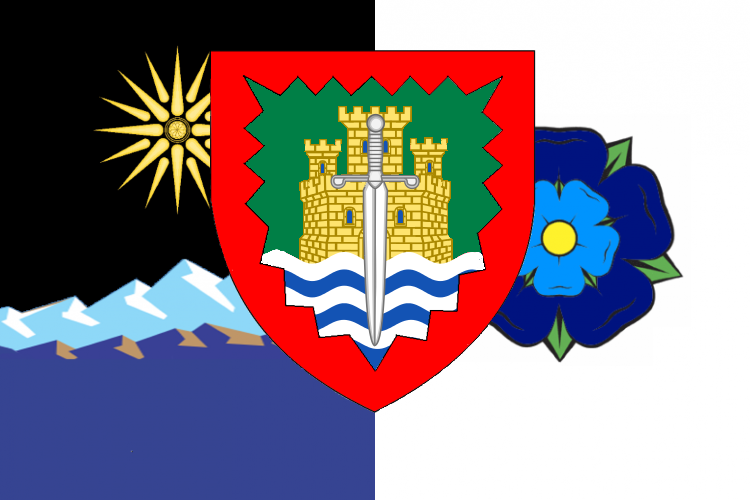Fleur de Lys-Longships Guard

| |||
| Active: | 1623 - present | ||
| Motto: | Fjǫrleif Forever | ||
| In use by: | Royal Family of Elwynn | ||
| Allegiance: | White Orchid Throne | ||
|
| |||
| Type: | Security Force | ||
| Size: |
| ||
| Nickname: | Fleurinots, Lyseni | ||
| Commander: | King Noah of Elwynn | ||
|
| |||
| Allies | |||
| Opponents | |||
The Fleur de Lys-Longships Guard (FLG) is an armed force for the protection and glory of the King of the Elwynnese Union. It is by law also charged with several additional duties and functions including, but not limited to, the policing of the Kingly City of Eliria, the Royal City of Avaldsnes, and the Royal City of Hyfrost. The FLG is held in strict subordination to the King of Elwynn and owes Him absolute obedience.
History
The Fleur de Lys-Longships Guard was founded in 1623 AN by the decree of the Steward of Elwynn, Hallbjörn Haraldsson of the Houses of Ayreon-Kalirion and of the Descendants of Freyja. Until the re-establishment of the Union Defence Force by the aforesaid Steward of Elwynn in 1629 AN, it was only the formal armed body in the Elwynnese Union. The FLG was for some time, until the re-establishment of the Cudgellers as well as the institution of City Watches by the White Orchid Throne in several major cities later in 1623, also the only police service in the Flower of the North.
Culture
As the personnel of the Fleur de Lys-Longships Guard, both civil and (para-)military, are recruited from those who are eligible for service in or to the Storish Guard in Alexandria and the Alexandrian Guard in Stormark, communication within the ranks of a heterogeneous force was an acute issue from the earliest days of the FLG's establishment. As a consequence the Fleur de Lys-Longships Guard adopted Norman Walsch, the dialect which is spoken in the Storish Jarldom which is known as the Duchy of Normandie, as its official language since it is a tongue which is, due to its similarities to and commonalities with Alexandrian Walsch and the Storish language, quite easy to master for both groups of recruits.